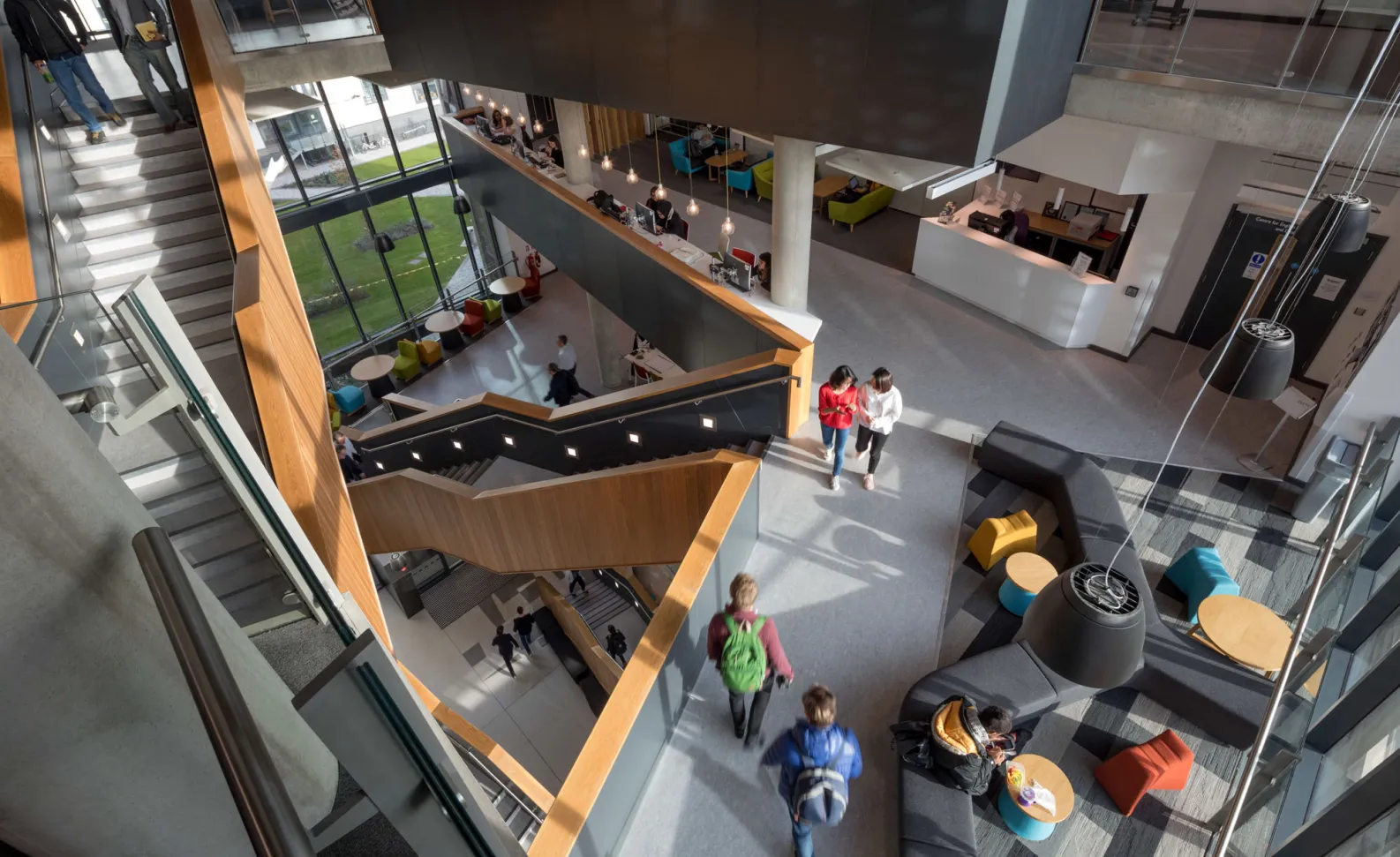News
Modular methodology: Constructing the schools of today, not just tomorrow
19 Oct 2022

Keith Prendergast
Director
Once criticised as temporary, second-nature design, due to their poor design and material choice, off-site, modular builds are now being hailed as modern methods of innovation in our quest for a net zero future. Being one of the core modern methods of construction (MMC), modular is fast becoming central to many project briefs and is one of the practices being championed by the government’s Construction Playbook. National director for architecture, Keith Prendergast, explores how the technique is being deployed to clear success for one county council that sought to revolutionise its schools and cut carbon in the process.
By its very nature, off-site construction can often seem opposed to the very traditional circles in which it moves. Our sector is often labelled as one of the slowest areas to embrace innovation, yet there are many positive strides within technology and innovation happening across the board.
Modular builds somehow defy logic, being built off-site and transported to a new location and installed incredibly quickly. While no process is immune to on-site challenges, the benefits of MMC are clear, particularly for education builds. Constructed off site utilising the same materials, codes and standards of conventional construction, but delivered in half the time period, the result is an ideal scenario for school’s that operate with limited renovation windows during term-time breaks.
In seeking to bring about change amidst the government’s school rebuilding programme, we recently collaborated with Essex County Council (ECC) on its drive to create 750 school places in the region. Safer, more flexible and providing a greater return on investment, the council chose to implement modular construction from the outset. This was extremely beneficial given that early engagement ensured the project saved time, reduced material waste and lowered costs.
The brief focused on delivering modular solutions to suit a uniform classroom product, which would be assembled into a building and replicated across future projects.
Modular works hand in hand with net zero and ECC understood the benefits of delivering its classroom construction in a factory-controlled environment. This approach means it is easier to control air leakage and thermal values and ensure the performance brief is met, while also reducing the amount of material wastage and deliveries on site.
The three schools we worked on with the council had their own intricacies and needs, but shared a clear identity, united under the council’s ambition to be a real driver for net zero modular construction in the UK.
Each school was designed to an enhanced RIBA Stage 3, which allowed the layout at one school to be easily replicated, added to, or amended at any point in time. Far from being a temporary measure, the units developed are designed to last around 60 years, meeting Department for Education requirements and helping ECC to deliver sustainable long-term planning with a blueprint for others to follow.
When we analyse these projects further, Sweyne Park is one of the first secondary schools in the country operating as a net zero carbon, modular building. Its energy saving measures include photovoltaic (PV) panels on its roof, LED lighting, as well as a high-efficiency, fresh air heating system, which is progressively providing a roadmap for the future through air source heat pumps.
The public sector, and schools in general, can be a real champion for modular construction. It is only set to develop further and increase its coverage across multiple sectors as we forge forward to a net zero future. Digital modelling, in tandem with 3D printing methods, will help to drive ahead modular building design. Continued development and innovation in new processes and technology will deliver even more precise data for planners, who can collaborate on designs remotely and cut carbon even further in the process.
Collaboration however remains key – not just in design, but in thought. Modular building is not a modern method of construction. It is the here, now and ever present in our future, constructing the schools of today and tomorrow.
Education
We are privileged to work on hundreds of education projects that are improving the lives of children and young adults from pre-school, right through to higher education.
